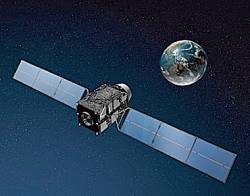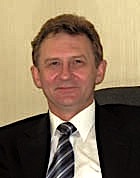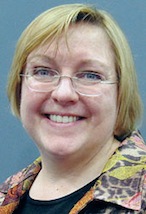 QZSS satellite looking at Japan from above (JAXA image)
QZSS satellite looking at Japan from above (JAXA image)Japan’s and India’s regional and augmentation satellite navigation programs look forward to an active year, according to speakers at March’s Satellite Navigation Summit in Germany.
By Inside GNSS Beidou control room
Beidou control roomCompass/BeiDou-2, China’s GNSS program will launch 5 satellites this year to join the 11 already in orbit, according to Li Xing, a representative of the China Satellite Navigation Office. This will support a planned declaration of initial operational capability (IOC) for a regional system covering 84˚E to 160˚E and 55˚S to 55˚N, he said at the Munich Satellite Navigation Summit in March.
The rapid development of the Chinese system was refelcted in the allocation of its own session during this year’s Summit, the most important GNSS policy gathering in Europe.
By Inside GNSSThe European GNSS program expects to gain an additional €7 billion (US$9.1 billion) budget for 2014–2020 to support Galileo and the European Geostationary Navigation Overlay Service (EGNOS), a satellite-based augmentation system that currently provides differential corrections to GPS signals, according to Paul Flament, Galileo and EGNOS program manager for the European Commission. He spoke at the 2012 Munich Satellite Navigation Summit that ended on March 15.
By Inside GNSS Sergey Revnivykh, GLONASS program, Roscosmos
Sergey Revnivykh, GLONASS program, RoscosmosGLONASS completed its long trek back to full operational capability with 24 operational satellites in the constellation last December, but Russia intends to keep pushing ahead with its GNSS, said Roscosmos official Sergey Revnivykh at the Munich Satellite Navigation Summit in March.
GLONASS now has a 347 billion ruble (US$11.81 billion) budget approved through 2020, by which time the system is scheduled to have 24 satellites transmitting both the new CDMA and legacy FDMA signals.
By Inside GNSSOh no! Not another learning experience!
Bumper sticker wisdom after the fact, but better late than never.
As this issue of Inside GNSS heads off to the printer, the regulatory phase of the GPS/LightSquared controversy appears to be winding down, and the litigation phase warming up.
By Dee Ann Divis
The firefight between LightSquared and the GPS community has sparked regulatory brush fires around Washington with the Federal Communications Commission (FCC), Congress, a half dozen executive agencies, and numerous companies moving to address a new and likely larger battle over receiver standards, radio frequency spectrum efficiency, and RF spectrum protection.
By Dee Ann Divis